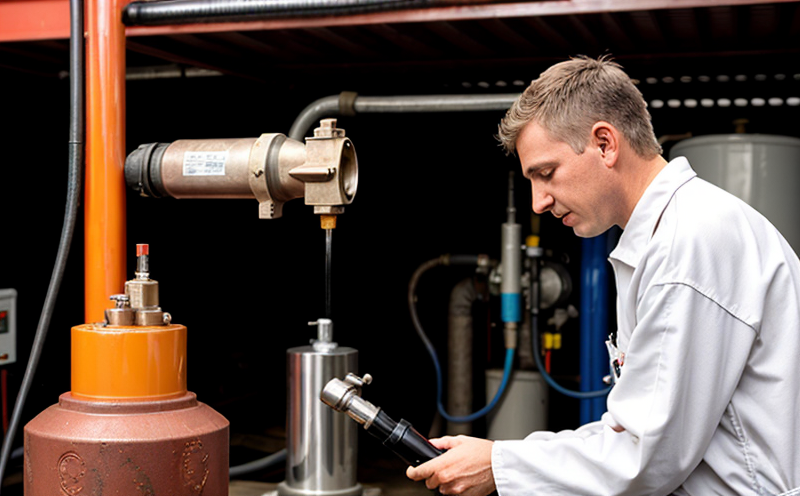ASTM D2699 Motor Octane Number Testing of Aviation Gasoline
The ASTM D2699 test method is a critical procedure used for the determination of motor octane number (MON) in aviation gasoline. This measurement is essential to ensure that aviation fuel meets the required performance standards under various operating conditions, especially at high temperatures and pressures encountered during engine operation.
Aviation gasoline, also known as 100/130 or Jet A-1 fuel, must be capable of maintaining its quality throughout storage and use. The motor octane number is an indicator of a fuel's resistance to detonation when used in spark-ignition engines. This property is crucial for aviation fuels because it ensures reliable engine performance and prevents the harmful effects of pre-ignition.
The ASTM D2699 test involves running the sample through a motor octane tester, which simulates the conditions that would be encountered during actual in-flight operation. The test apparatus consists of a high-pressure cylinder with a spark plug ignition system and an engine-driven air pump. The fuel is subjected to controlled combustion events under specified conditions.
The acceptance criteria for ASTM D2699 are based on the motor octane number results obtained from the test, which should be within the range of 85 to 100 for aviation gasoline. Results outside this range may indicate issues with fuel quality or formulation that could impact engine performance and safety.
Real-world application notes highlight the importance of consistent fuel quality in aviation. Variations in motor octane number can lead to fluctuations in engine power output, which is particularly critical during takeoff and landing phases when aircraft require maximum performance. Ensuring compliance with ASTM D2699 helps maintain safety standards across the global aviation industry.
- Compliance with ASTM D2699 ensures that fuel meets the stringent requirements set by aviation authorities worldwide, enhancing operational reliability and safety.
- The test is pivotal for quality assurance programs aimed at maintaining consistent product performance over time and across different environments.
Eurolab Advantages
At Eurolab, we provide ASTM D2699 motor octane number testing services with unparalleled precision and reliability. Our state-of-the-art laboratories are equipped with cutting-edge instrumentation that ensures accurate and repeatable results.
Our team of experts is well-versed in the latest testing methodologies and international standards, including ASTM D2699. This allows us to deliver consistent performance and timely reports tailored to your specific requirements. We offer quick turnaround times for urgent projects without compromising on quality.
We pride ourselves on our commitment to customer satisfaction, offering comprehensive support from initial consultation through final report delivery. Our flexible pricing models cater to both small and large-scale testing needs, ensuring that you receive the best value for your investment.
Quality and Reliability Assurance
The quality and reliability of aviation gasoline are paramount in maintaining safe and efficient operations. Ensuring compliance with ASTM D2699 is a cornerstone of our quality assurance programs. Our rigorous testing protocols help identify any deviations from the specified motor octane number range, allowing for prompt corrective actions.
- Conducting ASTM D2699 tests allows us to verify that aviation fuel meets international standards set by organizations like IATA and ASTM.
- The results of these tests are critical inputs into our quality control processes, ensuring consistent product performance and reliability.
Competitive Advantage and Market Impact
In the competitive aviation fuel market, maintaining high-quality standards is not only a regulatory requirement but also a key to gaining and sustaining market share. By offering ASTM D2699 testing services, Eurolab enables our clients to stay ahead of industry trends and regulations.
- Our testing ensures that aviation fuel suppliers can confidently meet the demands of their customers, thereby enhancing brand reputation.
- The reliable data provided by our tests supports strategic decision-making processes, enabling companies to optimize production and distribution strategies.





